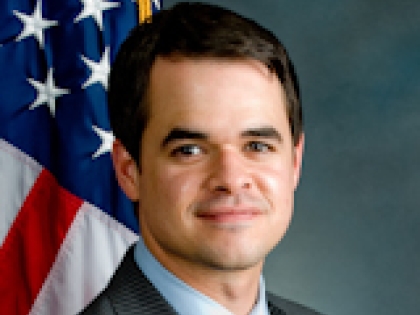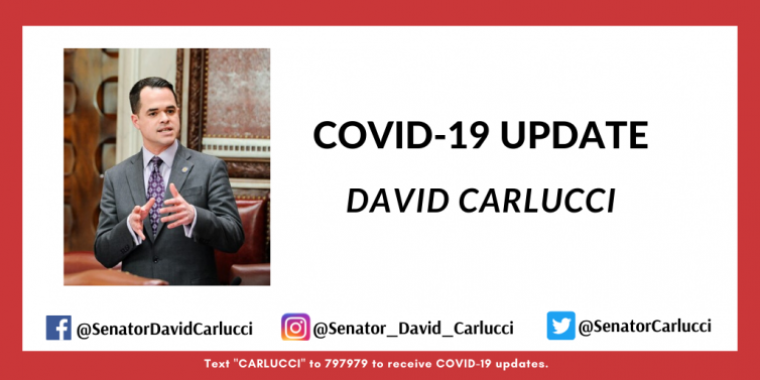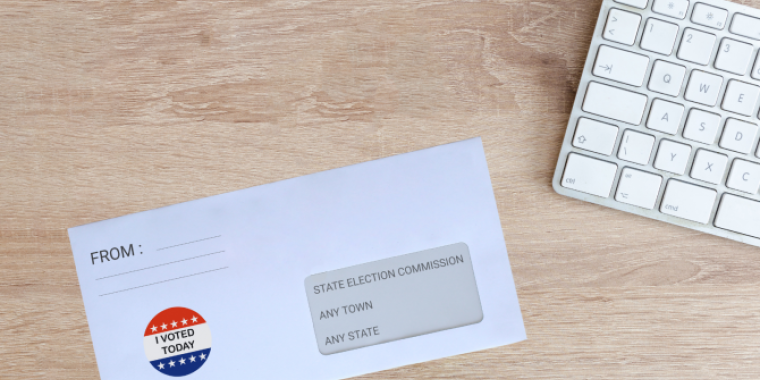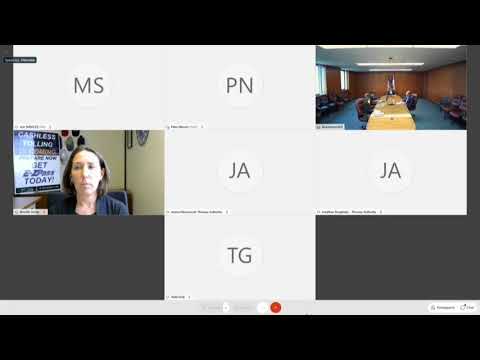
4/11 Coronavirus Update Stimulus
Senator David Carlucci
April 11, 2020
-
ISSUE:
- Coronavirus Updates

Dear Friends,
As many observe Passover or prepare for Easter, we know it is much different. The joy of gathering with family and friends is likely now a remote visit over the computer. My family had our own virtual seder on Wednesday.
New York appreciates the social responsibility everyone in Rockland and Westchester is taking for the greater good. New Yorkers should continue to stay home and follow the advice of our health officials by not gathering and practicing social distancing.
For many families, these holidays may be marked by the loss of a loved one or a loved one in the hospital or the loss of a job. We know residents are thinking of those impacted and will continue to do what they can to protect and help others.
I wanted to take this opportunity to share with you some important financial relief opportunities made possible through the $2 trillion economic stimulus package in response to COVID-19 pandemic. The sweeping legislation known as the CARES ACT (Coronavirus Aid, Relief, and Economic Security Act) is unprecedented in the history of our nation. In working with my federal partners, Senator Schumer, Senator Gillibrand and Congresswoman Lowey, I was able to effectively communicate our district’s needs, and this bill will greatly help Rockland and Westchester County residents.
However, our State and Counties are still in need. The stimulus had promised New York $6 billion in health care funding, but instead it’s about $1.3 billion, disqualifying 1/3 of New York Medicaid recipients. We must secure another stimulus bill from the federal government to close critical gaps that will impact our most vulnerable. In addition, if we want to restart our economy, we need the federal government to remedy the previous inequities in our State.
My efforts will be focused on fighting for more testing and for testing to actually be completely free. Right now, you can be charged for a doctor’s visit or telehealth session that does not result in getting a COVID-19 test. Further, we must ensure any vaccine developed is free of charge. In addition, diagnostic testing and treatment for COVID-19 should not include, co-payments, co-insurance or deductibles.
The stimulus bill covers a lot, and my goal with this email is to better explain how it will impact you. Please know my office is here to help you navigate all existing resources at the local, State, and federal levels. You can give my office a call at (845) 623-3627 between 9:00 a.m. - 5:00 p.m. Monday through Friday or email me directly anytime at carlucci@nysenate.gov.
Sincerely,
David Carlucci
What can the CARES ACT do for you and your family?
|
|
1. A STIMULUS CHECK |
This week, the IRS is preparing to send out direct payments to help Americans at this difficult time.
To check how much your stimulus check will be, you can use the calculator at the bottom of this article, courtesy of CNN: https://www.cnn.com/2020/03/27/politics/stimulus-check-calculator/index.html.
Checks are expected to be directly deposited into your bank account or sent in the mail. Originally, anyone who did not file a tax return in 2019 with the IRS was in jeopardy of not receiving a stimulus check. Senator Carlucci wrote a letter to the Secretary of the Treasury, Steve Mnuchin about changing this decision as many seniors and people with disabilities would not receive a payment. Now residents on Social Security and our most vulnerable, who typically do not file tax returns will still receive a $1200 stimulus check. The IRS is asking individuals who typically do not file to input their information here: https://www.freefilefillableforms.com/#/fd/EconomicImpactPayment.
If you receive veterans disability compensation, a pension, or survivor benefits from the Department of Veterans Affairs, or your income level does not require you to file a tax return, then you need to submit information to the IRS to receive an Economic Impact Payment.
How is the amount of your check determined?
The IRS looks at your income on your 2019 tax return, if you've already filed it, or your 2018 return to calculate your payment. Most individuals earning less than $75,000 can expect a one-time cash payment of $1,200 and couples will receive up to $2,400 – plus $500 per child. Payments go down from here by $5 for every additional $100 of adjusted gross income. If you made more than $99,000 in 2019 and did not file as the head of household, then you will not receive anything. The payments are not subject to tax, and those who owe backed taxes will still receive a payment
|
|
2. UNEMPLOYMENT INCREASED |
New York will continue to pay unemployment to people who qualify. The CARES ACT will also add an additional $600 per week beginning on 4/5/2020 until 7/31/2020, on top of whatever base amount New York State is paying you. New York will extend the period of unemployment coverage for an additional 13 weeks, which means residents are eligible for 39 weeks of unemployment. However, after July, the weekly payment will be reduced.
For more information, click here.
Freelancers or Independent Contractors
The stimulus bill provides Pandemic Unemployment Assistance (PUA) so more workers can qualify for unemployment benefits. PUA is extended to self-employed people and part-time workers (i.e. gig workers, freelancers and independent contractors). If you are unemployed, are partly unemployed or cannot work for a wide variety of coronavirus-related reasons, you will likely be approved to receive an extra $600 per week on top of the weekly benefits provided by New York, through the end of July.
New York State Department of Labor Will Call You Back
The State Department of Labor now has a new call-back system for Unemployment Insurance claims. If you have been instructed to call the Telephone Claims Center to complete filing your claim, you no longer need to call. A representative from the State Department of Labor will call you back within 72 hours. If you already completed a claim prior to this change, you do not need to complete another claim online. Benefits will apply retroactively, and are not dependent on the date of a successful application. If you haven't filed online, please do so at: http://labor.ny.gov/signin.
If you have questions about unemployment, are in need of getting a call back, or have not received a call within 72 hours, please contact my office at: (845) 623-3627.
|
|
3. SMALL BUSINESS RELIEF |
In recent days, there have been many complaints to my office about the Small Business Administration’s (SBA) handling of emergency grants and loans. I am reaching out to our federal partners, Congresswoman Lowey, Senator Schumer, and Senator Gillibrand about these problems on your behalf. You can always contact my office about issues related to these grants and loans, and we will involve our federal partners to get you the answers you need.
I fought for Rockland and Westchester to quickly be extended access to the SBA's disaster loans. Now, I am fighting for Facebook to extend their Small Business Grants to all New York State small businesses. Please sign this petition if support my call.
· The CARES ACT provides $10 billion for grants of up to $10,000 to provide emergency funds for small businesses to cover immediate operating costs.
· If your business is denied a loan, you can still qualify for an EIDL grant.
· It can be used for employee sick leave, to maintain payroll or to meet other needs like paying rent.
· Businesses may receive an immediate advance (3-days) of up to $10,000 with an Economic Injury Disaster Loan Advance.
o The Advance will be calculated as $1000 per full time employee up to $10,000. This advance does not have to be repaid (even if the loan is denied) as an Advance will be considered an Emergency EIDL Grant.
o You may keep the Advance even if you choose not to take the loan.
o Application for the Advance must be made on the application for EIDL.
o Check the box requesting the Advance and submit your banking information on the application as it will be a Direct Deposit.
· Apply as soon as possible, deadline to apply is December 31, 2020.
· If three days have passed and you have not heard back, please call 800-659-2955 or email disastercustomerservice@sba.gov.
· For more information, click here: https://www.sba.gov/funding-programs/loans/coronavirus-relief-options/economic-injury-disaster-loan-emergency-advance.
Expanded access to U.S. Small Business Administration Economic Injury Disaster Loans:
· Under the disaster assistance program, the SBA is was supposed to offer loans of up to $2 million to small businesses and nonprofits affected by the COVID-19 pandemic.
· However, we have seen reports that these loans may only be available for up to $15,000.
· My office is reaching out to the Small Business Administration for clarification and advocating for additional federal funding.
· The interest rate for small businesses is 3.75% for and 2.75% for nonprofits.
· Loan repayment terms differ by applicant, with a maximum of 30 years, and payments can be deferred for up to four years.
· Sole proprietors and businesses with fewer than 500 employees qualify, and applicants do not need to provide a personal guarantee on loans under $200,000.
· This loan is allocated on a first come, first serve basis. The deadline to apply is December 31, 2020.
· $350 billion was allocated for the Small Business Administration to provide first come, first serve, loans of up to $10 million per business, and the loans will be provided by lenders, including banks and credit unions.
· Any portion of that loan can be used to maintain payroll, keep workers on the books, or pay for rent, mortgage and existing debt could be forgiven, provided workers stay employed through the end of June.
· Protection Program loans can be forgiven if businesses maintain payroll for eight weeks at employees’ normal salary levels and use the loan proceeds for qualifying expenses.
· SBA Lenders officially started accepting applications for Paycheck Protection Plan (PPP) loans from independent contractors and sole proprietors.
· PPP can be used for the sum of payments of any compensation to or income of a sole proprietor or independent contractor that is a wage, commission, income, net earnings from self-employment, or similar compensation and that is in an amount, not more than $100,000 in one year, as pro-rated for the covered period.
· The SBA has been advising Small Businesses to apply through their current bank on their bank's portal, if they are an SBA-approved bank. However, if your primary bank is not SBA-approved here is a link to find another lender: Find Eligible SBA Lenders.
· The deadline to apply for PPP is June 30th, but the funds are capped. Don't get shut out, Apply NOW.
· NOTE: Wells Fargo is again accepting PPP applications as the Federal Reserve has lifted it's cap. If you are a Wells Fargo customer, apply directly on their portal.
· Businesses with existing relationships with an SBA Express Lender can access up to $25,000 quickly. This loan can be used while applying for the EIDL loan
· This loan must be repaid in full or in part by proceeds from the EIDL loan
· As part of SBA's debt relief efforts the SBA will automatically pay the principal, interest, and fees of current 7(a), 504, and microloans for a period of six months.
· The SBA will also automatically pay the principal, interest, and fees of new 7(a), 504, and microloans issued prior to September 27, 2020
PPP Vs. Unemployment
· Instead of the Paycheck Protection Program, self-employed individuals might consider applying for unemployment through the New York State Department of Labor.
· Guide for Self-Employed Individuals Applying for Unemployment
What to do if you need help?
· If you are not sure which COVID-19 SBA lending option is best for your business, you can work with a small business adviser by making an appointment online with the New York Small Business Development Center.
· The Small Business Development Center serving Rockland And Westchester Counties: (845) 356-6065, tmorley@sunyrockland.edu
· You can watch this SBA presentation on Youtube for more information.
· Small Business Owner’s Guide to the CARES Act, can be found HERE, https://www.nysenate.gov/sites/default/files/article/attachment/small_business_owners_guide_to_the_cares_act_final_1.pdf.
· The Westchester County Economic Development team is researching loans and grant programs for small business devastated by the shutdown of their businesses, communicating information through local Chambers of Commerce. For more information visit: https://westchestercatalyst.com/coronavirus-updates/.
|
|
4. HOMEOWNER RELIEF |
Borrowers of federally-backed mortgage loans can request a loan forbearance on their payments (without penalties, fees, or interest) for at least 180 days.
Multi-family borrowers may request a similar forbearance for up to 30 days.
In addition, foreclosures on similar mortgage loans are prohibited for at least 60 days and evictions from properties related to several federal programs are also prohibited for a 120 day period.
· Forbearance allows mortgage payments to be suspended for up to 12 months because of economic hardship that was caused by the coronavirus outbreak, however, they are not forgiveness, it is just a temporary pause on monthly payments.
· To receive a forbearance, you must call your mortgage servicer as soon as possible.
· Mortgage servicers are the companies who receive your monthly payments, and is not necessarily the same as your lender.
· Check your mortgage statement to find your servicer.
· If you cannot locate it, then you can look it up here: Mortgage Electronic Registration Systems website.
· You can check with Fannie Mae and Freddie Mac, if your loan is backed by one of them.
· Fannie Mae and Freddie Mac have suspended all foreclosure actions and evictions for at least 60 days because of the coronavirus pandemic.
· Freddie Mac and Fannie Mae also have said they would provide forbearance options to borrowers who were affected by the pandemic.
How do you qualify for Forbearance?
· You must have a mortgage backed by one of the following federal agencies:
o Fannie Mae
o Freddie Mac
o The Federal Housing Administration (FHA)
o The U.S. Department of Veterans Affairs (VA)
o The U.S. Department of Agriculture (USDA)
Questions to be prepared for:
· Why can’t you make your payments?
· Is the problem you are facing temporary or permanent?
· What is the current state of your income, expenses and other assets, including money in the bank?
· Are you a service member with permanent change of station orders?
|
|
5. EDUCATION FUNDING |
The stimulus bill provided $30 billion for an Education Stabilization Fund for states, school districts and institutions of higher education to prepare and coordinate responses to COVID-19, and provide grants to support students who rely on school resources.
· Elementary and Secondary Education will receive $13.5 billion through the existing Title I formula, to go directly to states. The funding can be used to:
o Help schools respond to coronavirus and related school closures
o Meet the immediate needs of students and teachers
o Improve the use of education technology and support distance education
o Plan and implement activities related to summer learning and supplemental after-school programs, including providing classroom instruction or online learning during the summer months
o Address the needs of low-income students, students with disabilities, English learners, migrant students, students experiencing homelessness, and children in foster care
o Provide mental health services and support
o Purchase technology
o Other activities necessary to maintain the operation of and continuity of services and continuing to employ existing staff of the local educational agency
· Institutions of higher education will receive $14 billion in flexible funding to defray lost revenue, technology costs associated with a transition to distance education and grants to students for food, housing, course materials, technology, health care, and childcare.
· Federal Student Loans: The stimulus bill includes provisions to relax or clarify current regulations on for student borrowers.
o You have the option to stop paying federal student loans through September 30, 2020, and you will face no penalties or late fees. This is only for loans that are owned by government agencies such as Direct Loans. This policy does not include private student loans or FFEL Loans.
o There is also no interest on federal student loans through September 30, 2020, which means no new interest will occur.
o The U.S. Department of education has suspended debt collection for those who are in default on their federal student loans. Your wages, tax refunds, and Social Security benefits cannot be garnished at this time to collect payments.
o If you have student loans that are not eligible for suspended payments, and you are struggling to keep up with them, you should contact your lender to ask about reducing the monthly payment, interest rate, or forbearance. With forbearance, interest will still accrue.
o If you have questions about a lender’s polices, you can contact Senator Carlucci’s office for assistance at (845) 623-3627.
|
|
6. EVICTION PROTECTION |
The stimulus bill provides an eviction moratorium for 120 days for tenants in federally-backed housing. You cannot be served with an eviction notice until July 25, 2020, and the notice must give you 30 days to leave the property. In the 120-day period, your landlord may not charge you late fees, penalties, or other charges for paying your rent late. It's important to note that the eviction moratorium does not relieve you of your obligation to pay your rent.
New York State has also taken aggressive action to protect renters, ensuring a statewide eviction moratorium for 90 days for all residential and commercial tenants. Eviction proceedings have also been halted and cannot continue until at least April 19th. The eviction moratorium does not cancel rent payments so in 90 days you would still owe backed rent. If you believe you will not be able to make your rent, you should let your landlord know as soon as possible that you recently suffered a financial loss of income, and they may be able to come to an agreement with you to work out a payment plan.
If you are having difficulties with a landlord or a pending eviction, please contact my office at (845) 623-3627, and we can get you in touch with Legal Services of the Hudson Valley.
For Daily Updates, visit my website at www.SenatorCarlucci.com or follow me on Facebook, Instagram, or Twitter.



